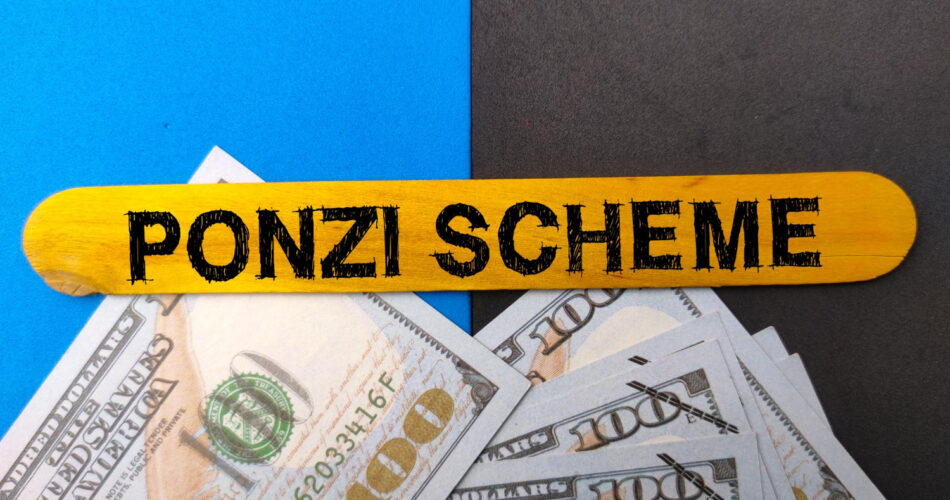In the ever-evolving world of cryptocurrency, understanding the ins and outs of crypto scams, particularly the notorious crypto Ponzi scheme, is crucial. This article aims to shed light on the dark underbelly of the crypto world, providing you with the knowledge to safeguard your investments. But first, what exactly is a Ponzi scheme?
Table of Contents
The Rise of Cryptocurrency
The Dawn of Digital Money
Cryptocurrency, a term coined just over a decade ago, has revolutionized the financial landscape. It began with Bitcoin, a digital currency that promised a decentralized financial future. Today, there are thousands of cryptocurrencies, each with its unique features and promises.
The Growth and Popularity of Cryptocurrency
The potential and promise of cryptocurrency have led to an explosion in popularity. As of 2023, the global cryptocurrency market is worth over $2 trillion. This growth isn’t just in value; the number of crypto users has also skyrocketed, with millions of people worldwide now owning some form of cryptocurrency.
The Dark Side of Cryptocurrency: Ponzi Schemes

The Anatomy of a Crypto Ponzi Scheme
A Ponzi scheme is a fraudulent investment operation where the operator, an individual or organization, pays returns to its investors from new capital paid to the operators by new investors, rather than from profit earned through legitimate sources. Operators of these schemes usually entice new investors by offering higher returns than other investments in the form of short-term returns that are either abnormally high or unusually consistent.
In the context of cryptocurrency, a crypto Ponzi scheme is essentially the same fraudulent investment operation, but with a modern twist. The “returns” are paid with cryptocurrencies, and the “investments” are also made with cryptocurrencies. The decentralized and often unregulated nature of the crypto world makes it a fertile ground for such schemes.
If something sounds too good to be true, it probably is.
Crypto Ponzi Schemes: A Modern Twist on an Old Scam
Crypto Ponzi schemes often start by launching a new cryptocurrency or a crypto investment platform. The fraudsters behind the scheme promise high returns and use aggressive marketing tactics to lure in investors. They may also use multi-level marketing strategies, where existing investors are rewarded for bringing in new investors.
Once the scheme has attracted a significant amount of investment, the operators start paying “returns” to the early investors. These returns are not profits from any legitimate business activity, but simply the funds contributed by later investors. This creates an illusion of a profitable investment, enticing more people to invest and existing investors to invest more.
Real-Life Examples of Crypto Ponzi Schemes
One of the most notorious examples of a crypto Ponzi scheme is BitConnect. Launched in 2016, BitConnect promised its investors up to 40% monthly returns and operated a sophisticated multi-level marketing system. However, in 2018, the platform collapsed, and the operators disappeared with investors’ money, causing losses estimated to be over $1 billion.
Another example is PlusToken, a Chinese cryptocurrency wallet that promised high yields but was exposed as a Ponzi scheme in 2019. The operators of PlusToken scammed investors out of an estimated $2 billion.
These examples serve as a stark reminder of the potential risks in the crypto world. As the saying goes, “If it seems too good to be true, it probably is.”
Red Flags of Crypto Ponzi Schemes

Guaranteed High Returns
One of the most common red flags of a crypto Ponzi scheme is the promise of guaranteed high returns. The world of investment is inherently risky, and no legitimate investment can guarantee high returns with no risk. If a crypto investment platform promises consistent, high returns regardless of market conditions, it’s a strong sign that something is amiss.
Unregistered Investments
Crypto Ponzi schemes often involve unregistered investments. These are investments that are not registered with the relevant financial authorities, meaning they are not subject to the same level of scrutiny and regulation as registered investments. This lack of oversight makes it easier for fraudsters to operate scams.
Overly Consistent Returns
Investments in the real world can go up and down. If a crypto investment is providing overly consistent returns, it’s a red flag. This could indicate that the returns are not coming from any legitimate investment activity, but are instead being paid out from the funds of new investors.
Complexity and Secrecy
If the investment strategy is unclear or secretive, it could be a Ponzi scheme. Legitimate investments should be transparent about their strategies and operations. If a crypto investment platform is not willing to provide clear, understandable information about how it operates, it’s a sign that something might be wrong.
Pressure to Buy
Scammers often pressure potential investors into making an investment decision on the spot. They may use tactics such as limited-time offers or claims of limited availability to create a sense of urgency. Legitimate investments don’t need to resort to such tactics.
Detailed Chart of Red Flags
| Red Flags | Description | Examples |
|---|---|---|
| Guaranteed High Returns | Promises of high returns with little risk are a classic sign of a Ponzi scheme. | “Earn 40% returns every month, guaranteed!” |
| Unregistered Investments | Crypto Ponzi schemes often involve unregistered investments, which are not overseen by regulatory authorities. | A new crypto investment platform that is not registered with any financial regulatory authority. |
| Overly Consistent Returns | Investments in the real world can go up and down. Overly consistent returns are a red flag. | A crypto investment that provides the same return every month, regardless of market conditions. |
| Complexity and Secrecy | If the investment strategy is unclear or secretive, it could be a Ponzi scheme. | A crypto investment platform that refuses to provide clear information about its investment strategy. |
| Pressure to Buy | Scammers often pressure potential investors into making an investment decision on the spot. | “This offer is only available for the next 24 hours!” |
By understanding these red flags, you can better protect yourself from falling victim to a crypto Ponzi scheme.
The Impact of Crypto Ponzi Schemes
Financial Impact on Victims
The financial impact of crypto Ponzi schemes on individual victims can be devastating. Many victims of these schemes are ordinary people who have invested their life savings, lured by the promise of high returns. When the scheme inevitably collapses, these investors can lose everything. The losses can be particularly severe in crypto Ponzi schemes due to the high volatility and unregulated nature of many cryptocurrencies.
Effect on the Reputation of Cryptocurrency
Crypto Ponzi schemes don’t just harm their direct victims; they also damage the reputation of the entire cryptocurrency industry. Every time a crypto Ponzi scheme makes the headlines, it reinforces the perception of cryptocurrency as a risky and untrustworthy investment. This can deter potential investors and slow down the adoption of cryptocurrency.
Legal Consequences for the Perpetrators
The perpetrators of crypto Ponzi schemes often face severe legal consequences when they are caught. These can include hefty fines and long prison sentences. However, due to the anonymous and cross-border nature of cryptocurrency, it can be challenging for authorities to track down and prosecute these fraudsters.
Despite these challenges, there have been several high-profile cases where the operators of crypto Ponzi schemes have been brought to justice. For example, the founders of OneCoin, a massive crypto Ponzi scheme that defrauded investors of billions of dollars, were arrested and charged with fraud.
Societal Impact
On a broader scale, crypto Ponzi schemes can have a significant societal impact. They can lead to increased regulatory scrutiny of the cryptocurrency industry, potentially leading to stricter regulations that could stifle innovation. They also contribute to economic inequality by transferring wealth from many ordinary investors to a few fraudsters.
How to Protect Yourself from Crypto Ponzi Schemes

The Importance of Research
The first and most crucial step in protecting yourself from crypto Ponzi schemes is thorough research. Before investing in any cryptocurrency or crypto platform, take the time to understand what you’re investing in. Look into the team behind the project, the technology, the business model, and the market conditions.
Check if the investment is registered with any financial regulatory authority. Unregistered investments are a common red flag for Ponzi schemes. Also, be wary of investments that promise guaranteed or consistently high returns. In the world of investment, higher returns usually come with higher risk.
Understanding the Risk of Unregulated Investments
Cryptocurrencies are often unregulated or lightly regulated, which can make them a fertile ground for scams like Ponzi schemes. It’s essential to understand the risks associated with unregulated investments. These can include the risk of fraud, the risk of hacking, and the risk of market manipulation.
The Role of Skepticism and Critical Thinking
Maintaining a healthy level of skepticism can be a powerful tool in protecting yourself from crypto Ponzi schemes. If something seems too good to be true, it probably is. Don’t let the promise of high returns cloud your judgment.
Critical thinking is also crucial. Don’t just take claims at face value. Ask questions, seek evidence, and make sure you understand how the investment is supposed to generate returns.
Where to Report Suspected Ponzi Schemes
If you suspect that you’ve encountered a crypto Ponzi scheme, it’s important to report it. In the U.S., you can report suspected Ponzi schemes to the Securities and Exchange Commission (SEC) or the Commodity Futures Trading Commission (CFTC). You can also report to your local law enforcement agencies.
By reporting suspected Ponzi schemes, you can help protect other investors and contribute to the integrity of the crypto community.
Conclusion
The world of cryptocurrency, while filled with potential and promise, is not without its pitfalls. Among the most dangerous of these are crypto Ponzi schemes, fraudulent operations that promise high returns with little risk, only to collapse and leave investors with significant losses.
Understanding the red flags of these schemes, such as guaranteed high returns, unregistered investments, overly consistent returns, complexity and secrecy, and pressure to buy, is the first step in protecting yourself. It’s also crucial to do thorough research before investing, understand the risks of unregulated investments, and maintain a healthy level of skepticism.
The impact of crypto Ponzi schemes is far-reaching, affecting not only the individual victims but also the reputation of the entire cryptocurrency industry. They can lead to increased regulatory scrutiny and contribute to economic inequality.
However, by being vigilant and informed, we can protect ourselves and contribute to a safer and more trustworthy crypto environment. Remember, the key to navigating the crypto world safely is knowledge. Stay informed, stay skeptical, and always do your research.
As we continue to explore the vast potential of cryptocurrency, let’s strive to make it a space that is not only innovative and profitable but also secure and trustworthy. The future of cryptocurrency is in our hands. Let’s make it a bright one.
FAQs
What is a crypto Ponzi scheme?
A crypto Ponzi scheme is a type of investment scam where returns to earlier investors are paid from funds contributed by newer investors, rather than from legitimate business activities.
How can I protect myself from a crypto Ponzi scheme?
Protecting yourself from a crypto Ponzi scheme involves doing thorough research, understanding the risks of unregulated investments, and maintaining a healthy level of skepticism.
What should I do if I suspect a Ponzi scheme?
If you suspect a Ponzi scheme, report it to your local authorities and financial regulatory bodies. Your actions could prevent others from becoming victims.


